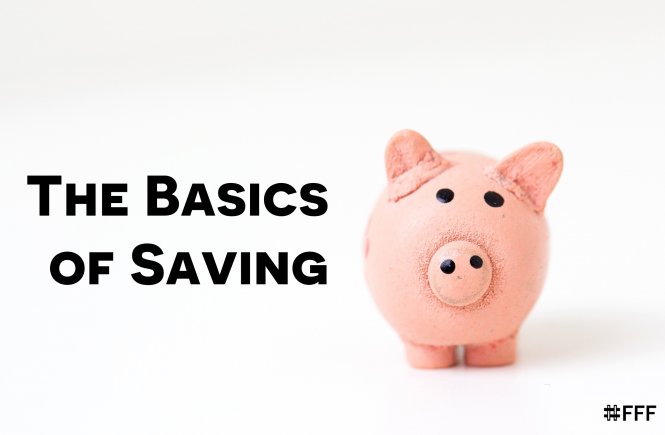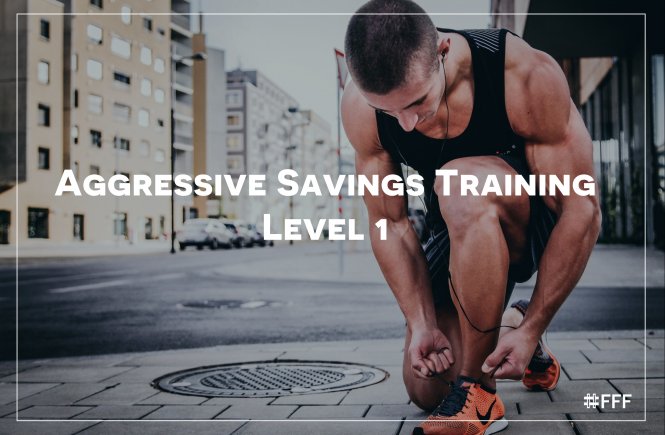If we look at the most basic definition of saving there are only two requirements:
- Have some sort of income.
- Do not spend money.
Fulfill these two requirements and you are guaranteed to save money. Sounds simple, right? But if it’s so simple wouldn’t almost everyone be saving money? That is correct, and unfortunately it isn’t as simple in practice as it sounds in theory, and it is the second requirement that make things complicated.
Our Passion to Spend
Spending money is fun! It brings us instant joy, comfort and access to things and services. It is not strange that we want to do something that brings us happiness in our lives, therefore it is in no way a weird behaviour. However, it is not an optimal behaviour either and it does have consequences that often outweigh what we get for the money spent. It is okay to spend money, it is when you start to waste money that you are lowering your potential life quality. The difference between spending and wasting money is that you spend on life necessities and things that you truly value, meanwhile wasting money is money spent on short term happiness and fast comfort (read more about spending and wasting here). It is the instant joy and access to comfort that tricks us into wasting money and it is therefore important to identify for ourselves where we draw the line between spending and wasting in order to be aware. When we are aware we can ensure to invest our money in things we value and consequently increase our life quality. Before we take a look at how we can save money we need to identify why we should save money.
Why Do We Save
Saving is about taking responsibility of our lives. Entering adulthood comes with certain responsibilities that we need to manage for ourselves and it is not something we can just close our eyes to and pretend is not there. Your personal finances is one responsibility that has a huge impact on your life. Your money determines how you can live, what you can eat, how you can spend your free time, how much you need to work and how you’ll spend your days in retirement. Mishandling your personal finances can have dire consequences and in a worst case scenario you could end up in personal bankruptcy which, depending on the legislation of your country, could enforce you to live with extremely limited income for a longer period. The majority of us manage our finances well enough to never be put in this situation, but even if we never reach the worst case scenario we may be suffering other consequences for not investing effort or time in our finances. This could be stress over if we are able to pay our bills, stress of having debt, missing out on opportunities because we don’t have the funds for it and being unable to realize the big dreams in our lives.
By not managing our personal finances and by not having savings we are putting ourselves in a huge risk. There are some aspects in our lives that we cannot control, your company might go bankrupt, unable to pay your salary and leaving you unemployed. Other events might seem distant to us and our reality but can affect the world economy and could also result in unemployment. There can be smaller crises such as your laptop suddenly breaking down or your car needs unexpected repairs. They might seem insignificant in this context but when it happens out of nowhere it will put stress on you if you don’t have savings and suddenly need to make these payments.
Having savings enable you to have financial freedom. With savings you can easily tackle unexpected payments or events in your life without significantly changing your daily living and your money will never restrict you from grabbing different opportunities that appear.
Why Do “I” Save
To summarize what we just have said about why we save money, we want to:
- Increase our life quality.
- Decrease risk.
- Achieve financial freedom and never be restricted by finances.
These are all great reasons to have savings, but we need to go one step further and identify why you as an individual want to save money. This is very important because starting to save money means that we need to spend less, to spend less means that we need to make sacrifices and give up on things and activities that we enjoy. We can’t have the cookie and eat it and to gain one thing, savings, we need to give up on something else, spending. It is about changing habits and ultimately about changing your mind-set. If you haven’t identified why you personally want to save money or why you think that it is important it will be very difficult to resist your habitual purchases once temptation strikes.
Your reasons to start saving money can be small like you want to be able to travel to a new country every year, or it can be big like having enough savings to become financially independent. There is one must and it is that you need to be able to connect to your reason.
My reason to save money is a mix of different reasons. First of all I think it is fun, it’s exciting to see every month how the number increases on my savings account. If I spend a lot of money it won’t grow as much which would lead to less fun. Secondly, I want to be able to spend money on whatever I want whenever I want to, and I’m talking about spending, not wasting money. I want to have financial freedom in other words. The third reason is not entirely a reason of why I want to save, but more of why I don’t want to spend, I respect the money I have earned and I therefore want to give it a purpose worth its value, hence not wasting. When I write this my friends might question some things I’ve spent money on. Yes, I do also waste money at times, it does happen, and because of my very strict spending habits the first 23 years of my life it doesn’t have a very big impact on my finances now. In the aftermath I can say that the sacrifices I made to save money was well worth the lifestyle I can have now. I also make sure that I’m not wasting more than I’m spending and saving.
Okay, enough talk about the why, let’s finally take a look at how we can save more money!
How to Save
Like I mentioned before, saving money is all about the mind-set and being aware of if you are spending or wasting money. You need to determine if the purchase you are about to make is more valuable than the reason you want to save money.
You have to make sacrifices. No matter how much fun you have drinking those five beers with your friends at the bar you can’t keep having five beers and at the same time achieve something with your savings. You might have to settle for one beer and learn how to still enjoy. When I was younger I was about to go on an exchange abroad. It costs quiet a lot of money so I was determined to save everything I could until then. That meant I never went for a fika (Swedish popular habit of having coffee and something sweet with a friend), I never ate out meaning that hunger was a fact when going to the city for a day, I never went to the cinema and I barely bought any clothes. One might think that I had a pretty boring life, but I would say that my life was equally fun as the average person. I can bake delicious sweets myself and hanging out with friends is equally fun in non-spending environments. I saw great movies on TV and I’m glad I didn’t spend more money on clothes because my sense of fashion was not the best at that age. There are two reasons why I didn’t suffer from my sacrifices:
- I created a habit of not spending.
- I found joy in non-spending activities.
Creating a Non-Spending Habit
Creating a habit is a consequence of repeated behaviors. All you need is to have enough discipline to not spend until you have created a hatbi. Eventually the thought didn’t cross my mind anymore that I wanted to buys something when I went into a store after I had stopped spending money. I simply wasn’t used to spend money so my mind didn’t even consider the thought of spending.
Find Joy in Non-Spending Activities
Spending money is the easy way to have fun but let’s be a bit more creative here. Find other activities you can do yourself or with friends that doesn’t involve money, trust me, there is a lot. If you like to eat out with friends, prepare some sandwiches and go for a picnic instead. Check out free events and activities that are happening in your city. Instead of the cinema you can borrow a good movie from a friend, pop your own popcorn and prepare a cosy movie night with candles and a blanket. I know, it will not be the same as watching a movie at the cinema, but come on, when earning some savings in the process it is a good trade off. If you are going to the city for the day it is not a must to spend the day hungry like I did, be smarter and bring a sandwich or something else delicious to snack on. Also don’t underestimate all the fun of just hanging out at your friends place or taking a walk in the city or in the nature. Be creative!
Strategies
Let’s talk about some strategies too! There are different ways to save more money and there are different areas in our lives where we can cut down our expenses.
1. Sales
With my passion for saving money I have become an expert in sales. If we talk about clothes we are living in crazy times, there is not only the big winter sale and summer sale, they have also added the mid-season sales and there is practically sales almost all around the time. To be honest I think that 80-90% of my wardrobe was bought at a reduced price. When something breaks, which doesn’t happen often, at least it was cheap. You can also find bigger items like furniture on sale if you keep your eyes open and there are a lot of things you can buy second hand (a plus for the environment!).
2. Supermarket Discounts
Supermarkets are also great, there is always something on discount. Plan your cooking according to the discounts and stock up on groceries with long expiration dates. Mondays was one of my favorite days when I was younger because that’s when we got the discounts of the week from our two local super markets in our mailbox. It was a lot of fun to check out what was on discount, but be aware, these are made to make you buy more. Make sure to evaluate the discounts with a plan and a clear strategy to not buy unnecessary groceries. Speaking of supermarkets, go to the cheaper ones. It makes a huge difference on your budget when you shop at the cheaper supermarkets compared to the more expensive ones. If you happen to live far away from a super market it will be more difficult to keep up with the discipline. Try to plan your grocery shopping and reduce it to once a week if possible. This will also lower the risk of buying unnecessary groceries.
3. Food
Food is also a big part of our expenses. If you cook your own food, only eat food that gives you nutrition and in the right portions you will save a ton of money. In other words you don’t need candy for example, it has zero nutrition and that is something that quickly adds to your expenses.
4. Alternatives
Find alternatives to your fixed expenses. Can you walk or take the bicycle instead of public transportation or car, can you get a cheaper phone plan, is there a cheaper gym or can you do exercise at home instead or do you even go to the gym? Research if there are any cheaper alternatives to your monthly expenses.
5. Do Not Spend
The last strategy is to simply not buy anything. Check what you already have at home and start using the things you own. If you find something you would like to buy, write it down on a list and wait. Time will give you perspective and tell if you really want it and if it’s worth the investment. It will also give you time to save up for it. Be aware that it ideally should pass at least one month, preferably more time. Clothes is another great area where we can stop spending. The majority of us, especially among the female population, buy a lot more clothes than we need. There is therefore a huge opportunity to save money in this category by using what we have instead of buying more. When you stop spending you will create the new habit of not spending and with time it will become easier to save money.
You don’t have to follow all these strategies 100%. It is okay to spend money and even occasionally waste a bit of money, but if you want to make a difference and achieve a good result with your savings you have to make changes. This is what works for me and you might need to experiment to find what works for you, but don’t be afraid to try different ways and strategies. If you have any thoughts, questions or concerns feel free to ask me and I will contribute with my perspective on the topic!




